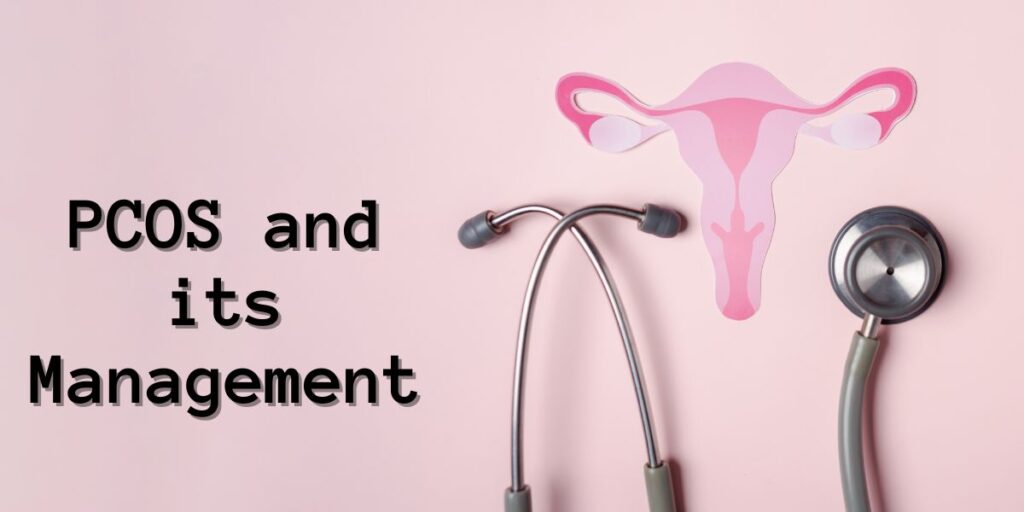Polycystic Ovary Syndrome (PCOS) is a common hormonal disorder affecting women of reproductive age. It is characterized by hormonal imbalances, irregular menstrual cycles, and often, the presence of cysts on the ovaries. Despite its prevalence, PCOS can be complex, with a wide range of symptoms and potential long-term health implications. Understanding PCOS and its management is crucial for women living with this condition.
What is PCOS?
PCOS is a hormonal disorder that affects the ovaries and is characterized by an imbalance in reproductive hormones. While the exact cause of PCOS is not fully understood, it is believed to involve a combination of genetic, hormonal, and lifestyle factors. Women with PCOS typically produce higher-than-normal levels of androgens, which are male hormones, and may also have insulin resistance, leading to difficulties in regulating blood sugar levels.
Causes and Risk Factors:
The exact causes of PCOS remain unclear, but several factors may contribute to its development:
- Genetic predisposition: Women with a family history of PCOS are at an increased risk.
- Hormonal imbalances: Elevated levels of androgens (such as testosterone) and insulin can disrupt ovarian function.
- Insulin resistance: Insulin resistance, a condition in which the body’s cells become less responsive to insulin, is commonly associated with PCOS.
- Lifestyle factors: Obesity, sedentary lifestyle, and poor dietary habits may exacerbate symptoms and increase the risk of developing PCOS.
Symptoms and Signs:
PCOS can present with a variety of symptoms, which may vary in severity among individuals.
Common symptoms include :
- Irregular menstrual cycles: Women with PCOS may experience irregular or absent menstrual periods due to ovulatory dysfunction.
- Excessive hair growth (hirsutism): Elevated androgen levels can lead to increased hair growth on the face, chest, back, and abdomen.
- Acne and oily skin: Androgens can stimulate the sebaceous glands, leading to acne and oily skin.
- Weight gain or difficulty losing weight: Insulin resistance and hormonal imbalances can contribute to weight gain, particularly around the abdomen.
- Hair loss (alopecia): Some women with PCOS may experience thinning hair or hair loss, particularly at the crown of the head.
Diagnosis :
Diagnosing PCOS typically involves a combination of medical history review, physical examination, and diagnostic tests.
Health Implications of PCOS:
PCOS is associated with several potential health risks and complications, including:
- Infertility : Ovulatory dysfunction and irregular menstrual cycles can make it difficult for women with PCOS to conceive.
- Increased risk of type 2 diabetes : Insulin resistance and obesity are common in women with PCOS, increasing the risk of developing type 2 diabetes.
- Cardiovascular disease : Women with PCOS are at an increased risk of developing hypertension, dyslipidemia, and other cardiovascular risk factors.
- Endometrial cancer : Prolonged periods of unopposed estrogen exposure due to anovulation (lack of ovulation) can increase the risk of endometrial hyperplasia and endometrial cancer.
Management and Treatment Options :
Management of PCOS focuses on addressing symptoms, improving hormonal balance, and reducing the risk of long-term complications.
Treatment options may include:
- Lifestyle modifications: Adopting a healthy lifestyle, including regular exercise and a balanced diet, can help manage weight, improve insulin sensitivity, and reduce symptoms.
- Medications: Oral contraceptives are commonly prescribed to regulate menstrual cycles and reduce androgen levels. Anti-androgen medications, such as spironolactone, can help reduce hirsutism and acne. Insulin-sensitizing agents, such as metformin, may be used to improve insulin resistance.
- Fertility treatments: Women with PCOS who are trying to conceive may benefit from ovulation induction medications (e.g., clomiphene citrate, letrozole) or assisted reproductive technologies (ART) such as in vitro fertilization (IVF).
- Psychological support: Living with PCOS can be challenging, and women may benefit from counseling or support groups to address emotional and psychological concerns, such as anxiety, depression, and body image issues.
Conclusion:
PCOS is a complex hormonal disorder that can have significant implications for women’s health and well-being.
By understanding the symptoms, diagnosis, and management options for PCOS, women can take proactive steps to manage their condition effectively and minimize its impact on their lives. If you suspect you have PCOS or are experiencing symptoms of PCOS, it’s essential to consult with a Gynecology Specialist for proper evaluation and management.
